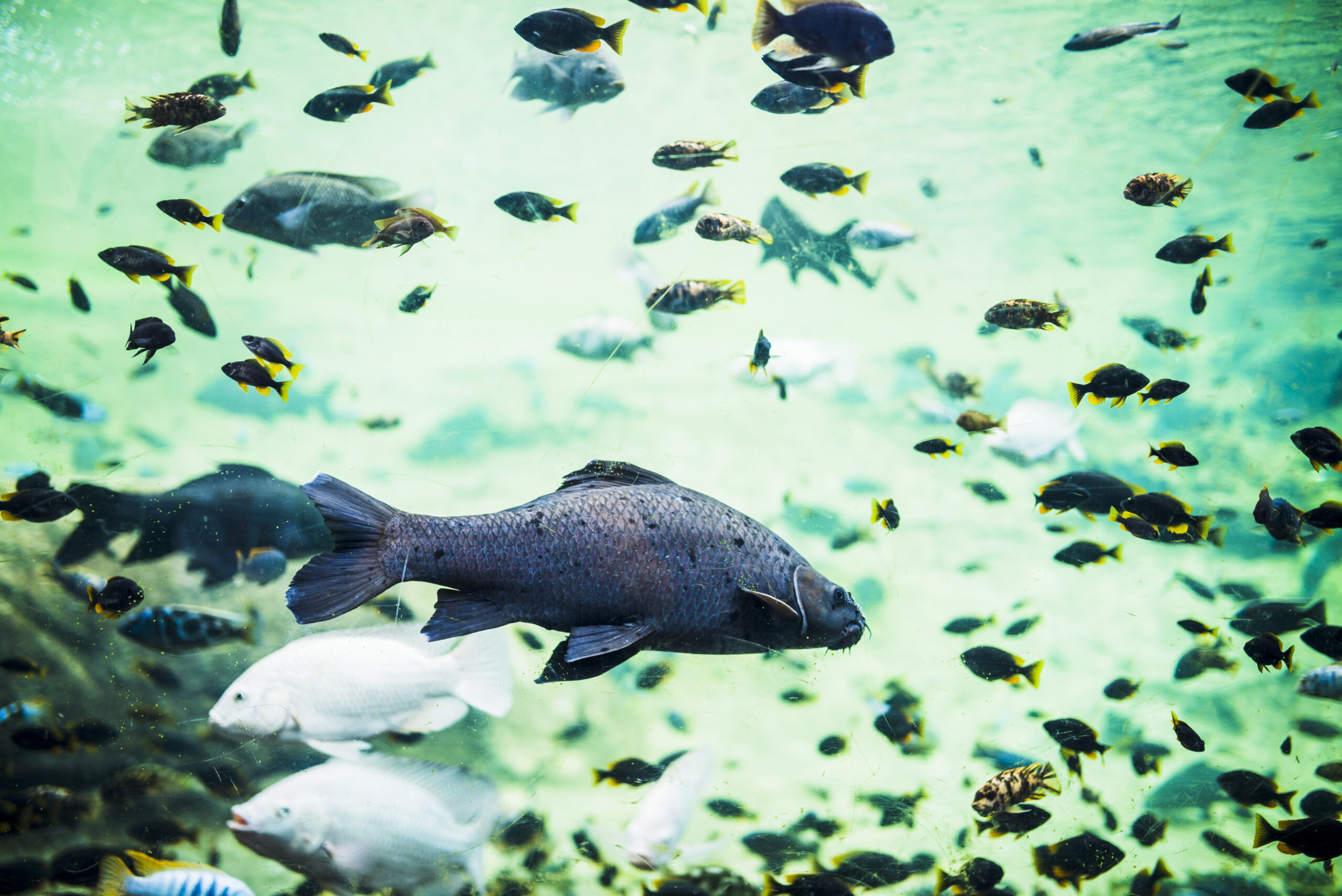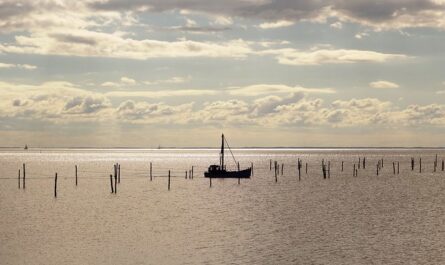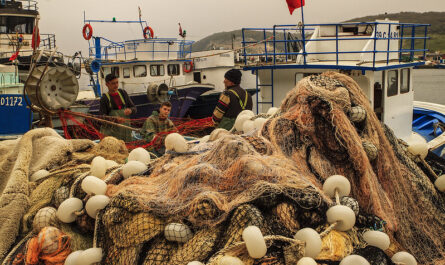Overfishing in the Atlantic Ocean has become a critical issue, with far-reaching consequences for marine ecosystems, fish populations, and global food security. This complex challenge arises from decades of unsustainable fishing practices, exacerbated by economic pressures, inadequate regulations, and climate change. In this article, we explore the causes, consequences, and potential solutions to overfishing in the Atlantic, shedding light on its profound impact on marine biodiversity and the health of the ocean.
Understanding Overfishing
Fish populations are depleted as a result of overfishing, which happens when fish are taken at a rate higher than their capacity to reproduce. In the Atlantic, overfishing has been driven by several factors:
- Industrial Fishing Practices: Advances in technology, such as large trawlers and advanced sonar, have allowed for massive fish hauls, often exceeding sustainable limits.
- Global Demand for Seafood: The Atlantic supplies a significant portion of the world’s seafood, with species like cod, tuna, and haddock in high demand.
- Lack of Effective Regulation: Weak enforcement of fishing quotas and international agreements has allowed overfishing to persist.
- Illegal, Unreported, and Unregulated (IUU) Fishing: IUU fishing undermines conservation efforts, accounting for significant losses in fish populations annually.
The Impact of Overfishing on Marine Ecosystems
The consequences of overfishing extend beyond the targeted fish species, affecting the entire marine ecosystem.
- Loss of Biodiversity: Overfishing disrupts food chains, leading to declines in predator and prey species. For example, the overharvesting of predatory fish like sharks has resulted in population booms of smaller fish and invertebrates, altering ecosystem dynamics.
- Habitat Destruction: Practices like bottom trawling damage seafloor habitats, including coral reefs and seagrass beds, which are critical for many marine species.
- Bycatch Issues: Non-target species, including dolphins, sea turtles, and seabirds, often get caught in fishing gear, leading to significant mortality rates.
- Algal Blooms: The removal of herbivorous fish disrupts the balance of marine ecosystems, contributing to algal blooms that deplete oxygen levels and create dead zones.
Decline of Iconic Atlantic Fish Species
Several fish species in the Atlantic have faced dramatic population declines due to overfishing:
- Atlantic Cod: Once abundant, Atlantic cod stocks collapsed in the 1990s due to overfishing, particularly off the coast of Newfoundland. Despite recovery efforts, populations remain vulnerable.
- Bluefin Tuna: Highly prized for sushi and sashimi, bluefin tuna has been overexploited to the brink of extinction in some regions.
- Swordfish: Overfishing has significantly reduced swordfish populations, prompting strict quotas and recovery plans.
- Sharks: Targeted for their fins and often caught as bycatch, many shark species in the Atlantic face critical endangerment.
Economic and Social Consequences
Overfishing in the Atlantic also has profound economic and social implications:
- Impact on Fisheries: Overfished stocks result in reduced catches, threatening the livelihoods of millions who depend on fishing. Small-scale fishers are particularly vulnerable to the depletion of local stocks.
- Global Food Security: The Atlantic is a major source of protein for populations worldwide. Declining fish stocks jeopardize food supplies, especially in developing nations.
- Economic Losses: The World Bank estimates that overfishing leads to billions of dollars in economic losses annually due to depleted fisheries and reduced productivity.
Addressing Overfishing in the Atlantic
Tackling overfishing requires a multifaceted approach that combines science, policy, and community engagement.
- Implementing Sustainable Fishing Practices:
- Catch Limits: Setting science-based quotas ensures fish populations have time to recover.
- Selective Gear: Using fishing gear that minimizes bycatch and reduces habitat damage.
- Seasonal Closures: Protecting breeding seasons to allow fish populations to regenerate.
- Strengthening International Agreements:
- Regional Fisheries Management Organizations (RFMOs): Collaborating on international regulations to manage shared fish stocks.
- Combatting IUU Fishing: Investing in satellite monitoring and enforcement to curb illegal fishing activities.
- Marine Protected Areas (MPAs):
Designating MPAs allows ecosystems to recover and enhances biodiversity. Studies show that well-managed MPAs lead to increases in fish populations and spillover benefits to adjacent areas. - Promoting Sustainable Seafood:
- Consumer Awareness: Encouraging consumers to choose certified sustainable seafood, such as those with Marine Stewardship Council (MSC) labels.
- Market Incentives: Supporting businesses that adopt sustainable sourcing practices.
- Restoration and Recovery Programs:
- Stock Rebuilding Plans: Coordinated efforts to restore depleted fish stocks.
- Habitat Restoration: Protecting and rehabilitating critical habitats like coral reefs and mangroves.
The Role of Technology in Combatting Overfishing
Advancements in technology are playing a crucial role in addressing overfishing:
- Satellite Monitoring: Real-time tracking of fishing vessels helps detect illegal activities.
- Artificial Intelligence: AI-powered systems analyze data to improve stock assessments and inform management decisions.
- Blockchain: Ensures transparency in seafood supply chains, reducing IUU fishing.
Climate Change and Overfishing
Climate change exacerbates the challenges of overfishing in the Atlantic. Rising ocean temperatures, acidification, and shifting currents affect fish distribution and reproductive patterns, making it harder for depleted stocks to recover. Addressing overfishing must go hand-in-hand with global efforts to mitigate climate change.
Success Stories and Hope for the Future
Despite the difficulties, there are encouraging success stories:
- North Sea Cod Recovery: Strict quotas and collaborative management led to a significant rebound in cod stocks in the North Sea.
- U.S. Fisheries Management: The Magnuson-Stevens Act in the U.S. has successfully rebuilt many overfished stocks through science-based management.
- Community-Led Initiatives: Coastal communities in countries like Belize and Indonesia have implemented sustainable fishing practices with remarkable results.
Conclusion
Overfishing in the Atlantic Ocean poses a severe threat to marine ecosystems, fish populations, and human livelihoods. However, with coordinated efforts, sustainable practices, and technological innovation, it is possible to reverse the damage and ensure a thriving ocean for future generations. Protecting the Atlantic is not just an environmental imperative—it is a global responsibility that requires collective action from governments, industries, and individuals. By prioritizing sustainability, we can restore balance to the Atlantic and secure its bounty for generations to come.



